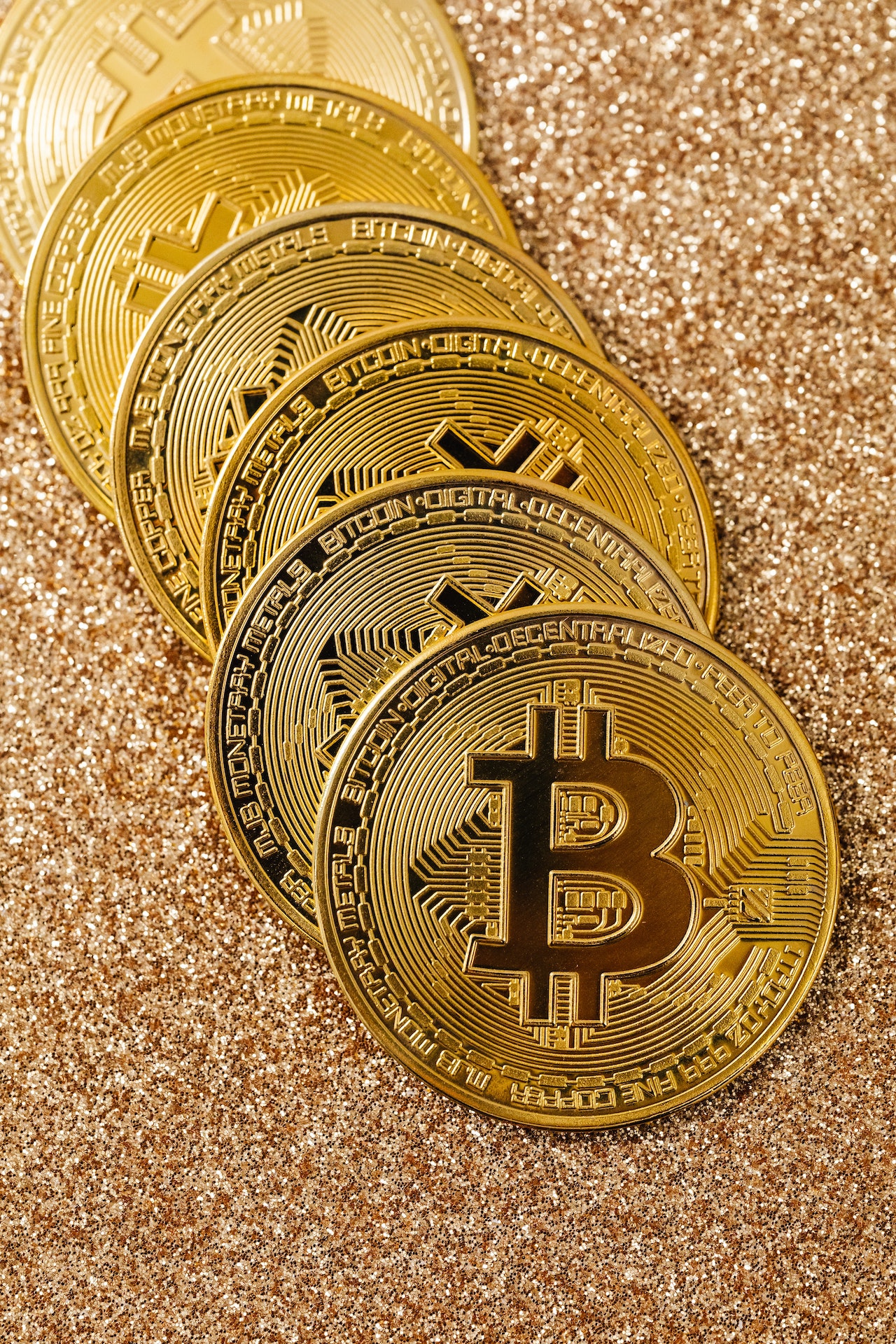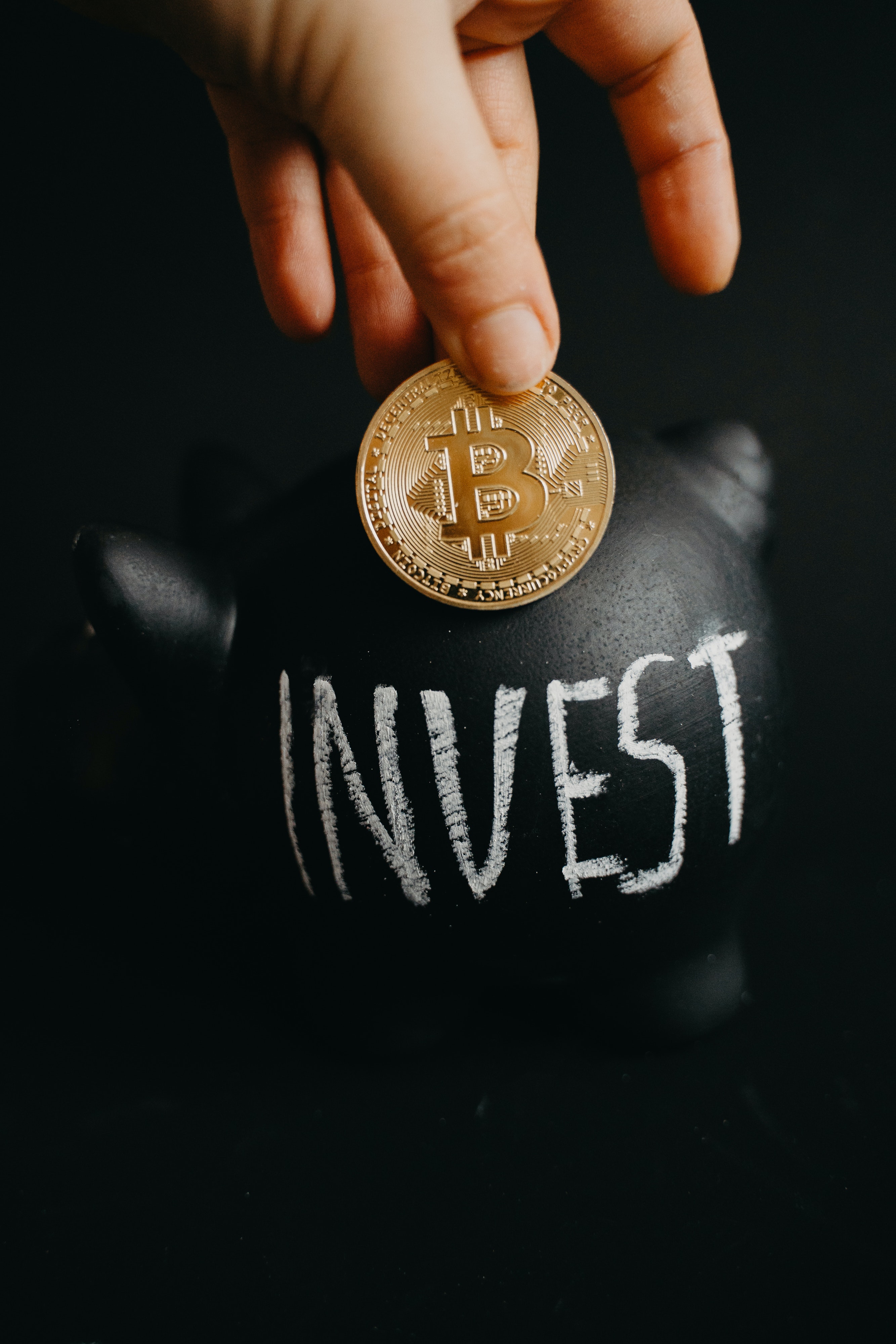Digital coin, digital token, digital asset, digital currency. It goes by many names, but you are probably most familiar with cryptocurrency. They are similar to money but for the modern age: innovative, versatile, fast, affordable to transfer, and open for anyone to use. As we live in a world increasingly interconnected with technology, cryptocurrencies have become more critical than ever, and they have enormous potential to improve the current financial system.
Of course, you might have already known this, given the vast mainstream attention cryptocurrencies have been getting in Malaysia and the rest of the world. But you might be wondering, what are the options available for you to consider investment in them? Let's look at a few cryptocurrencies to invest in for 2022.

Bitcoin
The original digital coin has come a long way from its creation in 2009. Since then, Bitcoin has become the most popular cryptocurrency among investors. And for several good reasons. It is a store of value similar to gold, an asset that protects against inflation, and a financial tool for moving and sharing value that is quicker, safer, and more transparent.
Bitcoin is not simply unique because it's a digital coin alternative to money or gold. It's also decentralised, which means no organisation controls it. This is why you will often hear Bitcoin referred to as a 'decentralised' currency. In simple terms, Bitcoin is managed by a global network of computers working together to verify and approve all transactions. Every transaction is recorded on a public list stored on a piece of technology called the blockchain. It might sound complicated, but the blockchain can be considered a public book that permanently records every time ownership of the Bitcoin is transferred to someone else.
Ethereum
Imagine a world where you could save time and money on essential financial and legal services by not engaging with financial middlemen and lawyers. That sounds more efficient, doesn't it? This is where Ethereum comes in. The network aims to make everyday life more efficient through smart contracts, which automate processes and remove middlemen to ensure a better customer experience.
Compared to Bitcoin, Ethereum was built as more than just a digital payment facilitator and store of value. It was built to support the creation of decentralised apps and run smart contracts, which opens up possibilities for other industries to create value for their customers. Ethereum-based applications are already making their presence felt in finance, gaming, the arts, and more.
Examples include the new decentralised finance (DeFi) sector that everyone is talking about — where traditional finance functions like lending, borrowing and trading have now been completely automated on Ethereum. The most popular non-fungible tokens (NFTs) and NFT-related applications are overwhelmingly built on Ethereum too. With its robust network, autonomous smart contracts, and huge number of developers, Ethereum's potential looks to continue to grow. Its ever-increasing influence in more and more markets is a strong indication of its value.
XRP
Much like Bitcoin, XRP was created to provide a more efficient means to send international payments in a time-saving and cost-effective manner. This is done by connecting the sender and receiver directly, removing the need for a middleman. XRP is best known for its usage in the Ripple network, which is why the digital coin is sometimes called Ripple. Supporters argue that XRP's real-time asset transfer system is cheaper, more transparent, and more secure than current transfer payment methods. An XRP transaction confirmation takes an average of three to five seconds to complete, considerably faster than other digital coins or today's traditional financial networks, which can take days.
XRP is an open-source cryptocurrency and can be used by anyone. XRP and Ripple are often used interchangeably, but technically speaking, Ripple is the payments platform, and XRP is a digital coin that operates independently of Ripple. It simply acts as the bridge between different currencies transferred on the Ripple network. It also serves as a source of liquidity for the network.
Litecoin
Litecoin, in many ways, is similar to Bitcoin. Their similarities include being decentralised, a global peer-to-peer payment system, and having a limited supply. Some people even refer to Litecoin as the 'silver' to Bitcoin's 'gold’. However, this is where the similarities end. One of the primary differences between the two digital coins is that Litecoin's average transaction time is two and a half minutes compared to Bitcoin's 10 minutes. This means that Litecoin can confirm transactions roughly four times faster than Bitcoin.
This difference in transaction time makes Litecoin a more attractive option to businesses, which is why Litecoin is often regarded as a currency for day-to-day transactions while Bitcoin is considered more of a store of value. As simple as it might be, Litecoin was designed to complement Bitcoin by solving some of its issues like fees, transaction time, and supply. Rather than a competition to Bitcoin, Litecoin's goal is to supplement the world's first digital coin.
Bitcoin Cash
You may have noticed a pattern in this article. Every subsequent digital coin mentioned after Bitcoin was designed to improve some of its features, such as network versatility and average transaction time. Bitcoin Cash is no exception. When interest in Bitcoin skyrocketed in 2017, its network became congested as many people jumped on the cryptocurrency bandwagon. This led to a backlog of transactions and increased fees, which wasn't conducive to Bitcoin being used for everyday transactions.
Bitcoin Cash came from the need to improve Bitcoin as a medium of exchange. Due to Bitcoin network’s limited capability to handle high amounts of transactions at the same time, Bitcoin Cash was created as an alternative. Since then, the Bitcoin Cash community has continued to develop its technology beyond simply offering a 'larger transaction volume' alternative to Bitcoin. Additionally, their focus is on facilitating everyday transactions, making them cheaper and faster to be used as digital cash for everyday purposes.

Explore these cryptocurrencies with Luno, the leading and regulated digital asset platform in Malaysia
If you're ready to invest in cryptocurrency, log on to Luno's website and register for an account today. Here's how:
Sign up for a Luno Wallet on the web or download the app on Apple App Store or Google Play Store.
Follow the instructions to verify your identity and set up your profile.
Once your application is approved, your wallet is ready, and you can start investing in cryptocurrencies.
Deposit into your Luno wallet through your preferred payment method.
Instantly purchase and store Bitcoin, Ethereum, XRP, Litecoin, or Bitcoin Cash.
Read more on Luno’s Terms of Use and risks associated with cryptocurrencies here: www.luno.com/en/legal/terms
Note: This article is for educational purposes only and you should not construe any such information as investment or financial advice. Investing in cryptocurrency is high risk and may result in the loss of capital as the value can fluctuate. We recommend individuals to consult with a licensed financial planner for detailed financial advice on whether cryptocurrency is a good investment option.

